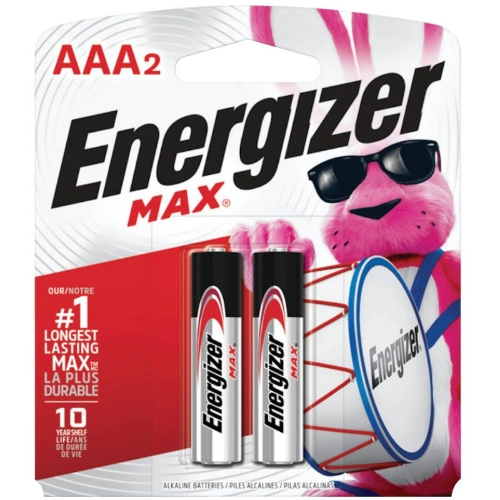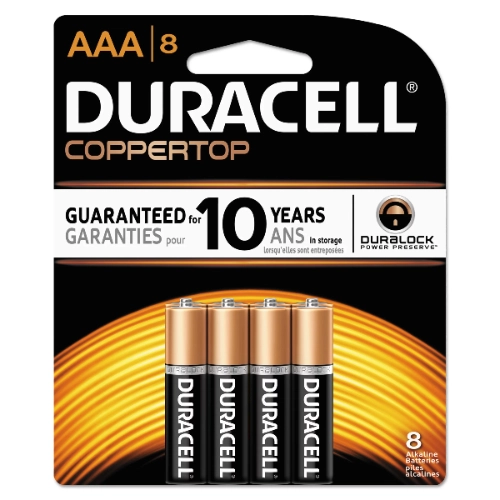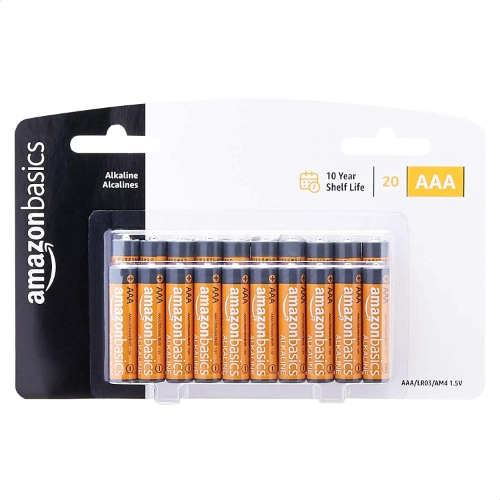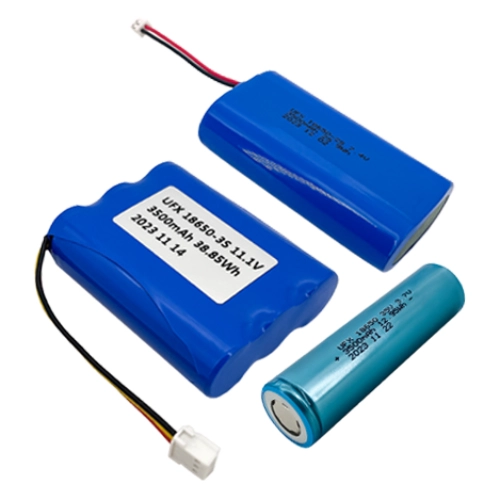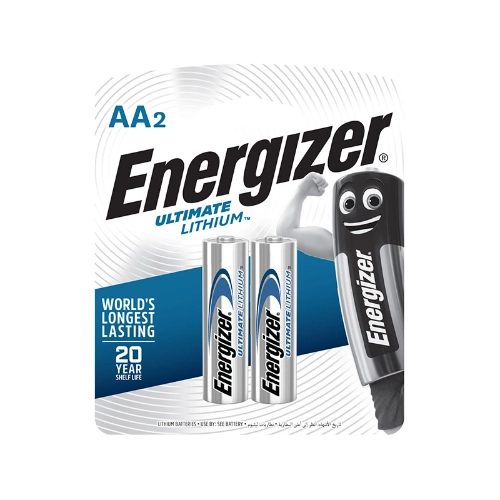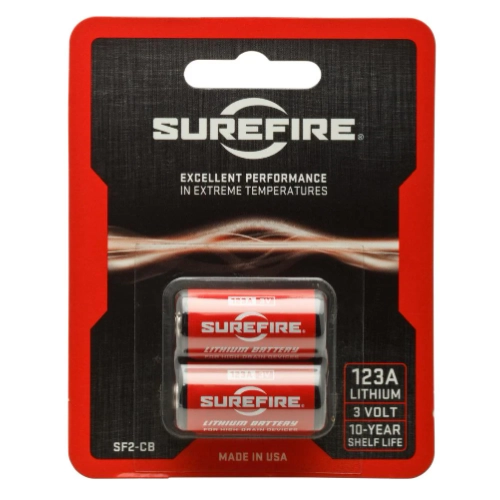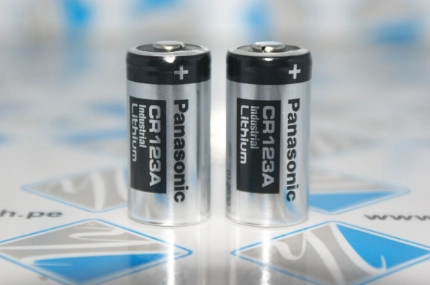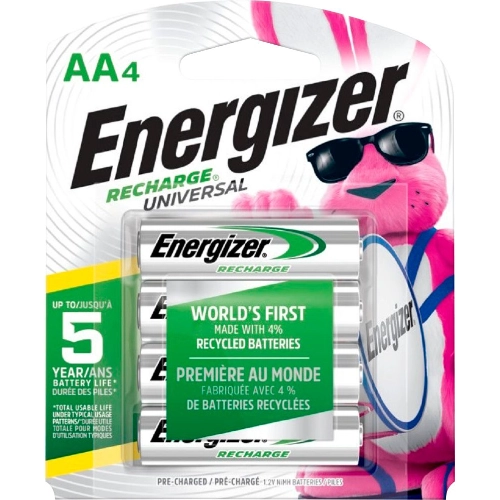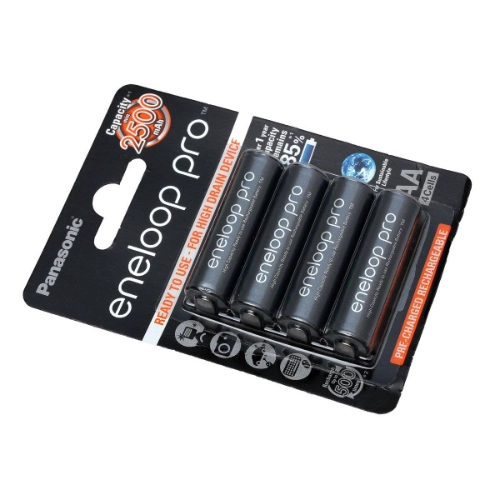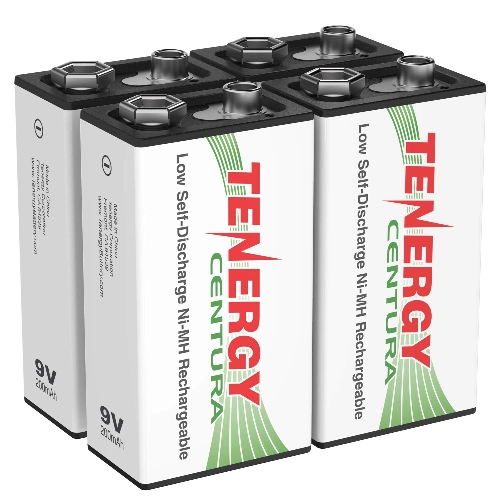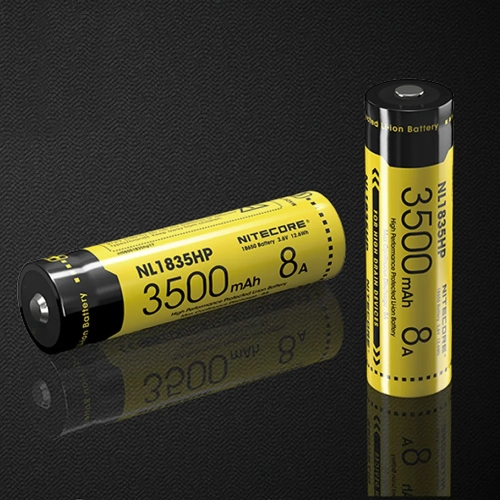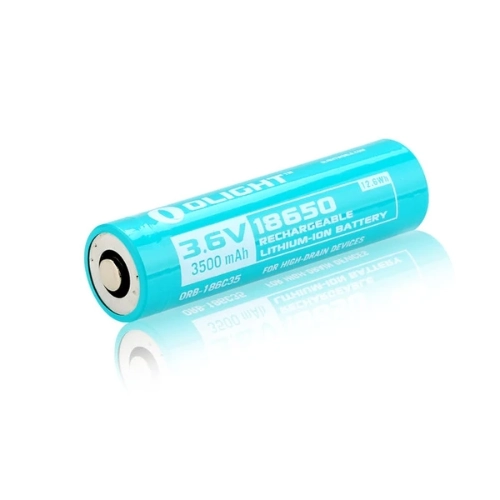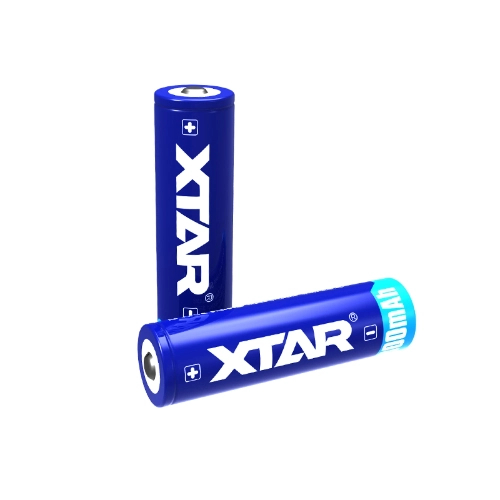Whether you use flashlights for outdoor adventures, emergencies, or everyday tasks, selecting the best batteries for flashlights can make all the difference. This comprehensive guide will explore the best flashlight batteries across various categories, including alkaline, lithium, NiMH, and rechargeable options. Additionally, we will compare these batteries and provide valuable tips for maintaining their performance.
Part 1. Best alkaline batteries for high-power flashlights
Alkaline batteries are popular for flashlight users due to their affordability and wide availability. When it comes to alkaline batteries, several popular models stand out:
- Energizer MAX
Energizer MAX alkaline batteries are known for their long-lasting power and reliability. They provide a consistent supply of energy, ensuring your flashlight performs optimally.
- Duracell Coppertop
Duracell Coppertop batteries are well-regarded for their long shelf life and reliable performance. Manufacturers design them to deliver consistent power output, making them suitable for flashlight applications.
- AmazonBasics Alkaline
AmazonBasics Alkaline batteries offer a cost-effective solution without compromising quality. They provide reliable power and are available in various sizes to fit different flashlight models.
While alkaline batteries are affordable and readily available, they may have a shorter runtime than other battery types, especially in high-drain situations.
Part 2. Best lithium batteries for flashlights
Lithium batteries are known for their superior performance and extended runtime, making them an excellent choice for flashlights. Here are a few popular lithium battery models:
- Ufine 18650 3500mAh
The Ufine 18650 3500mAh battery is gaining popularity among flashlight enthusiasts. Its high capacity and reliable performance offer an excellent power solution for flashlights with 18650 batteries. It provides a long runtime and ensures sustained brightness during extended use.
- Energizer Ultimate Lithium
People highly regard Energizer Ultimate Lithium batteries for their impressive power and longevity. They offer extended runtime and perform exceptionally well in extreme temperatures, making them suitable for demanding flashlight applications.
- SureFire Lithium
SureFire designs Lithium batteries specifically for high-performance flashlights. They provide consistent power output and a long shelf life, ensuring reliable performance when needed.
- Panasonic CR123A
Panasonic CR123A lithium batteries offer a combination of reliability and affordability. They are compatible with various flashlight models and deliver consistent power for optimal performance.
Lithium batteries provide higher voltage output, resulting in brighter illumination and sustained brightness over extended periods. They also have a low self-discharge rate and are lightweight, making them ideal for portable flashlights. However, it’s essential to consider their higher cost and limited availability in some areas.
Artikel Terkait: NiMH vs. Li-ion: 15 Essential Facts Compared
Part 3. Best NiMH batteries for flashlights
Nickel-metal hydride (NiMH) batteries are an excellent option for those who prioritize rechargeability and environmental friendliness. Here are a few popular NiMH battery models for flashlights:
- Energizer Recharge Universal
Energizer Recharge Universal batteries offer the convenience of reusability without compromising on performance. They balance capacity and cost-effectiveness well, making them suitable for many flashlight applications.
- Eneloop Pro
Eneloop Pro batteries are known for their high capacity and long-lasting power. Flashlight enthusiasts can recharge them hundreds of times, making them a cost-effective and eco-friendly choice.
- Tenergy Centura
Tenergy Centura batteries retain their charge for extended periods, making them ideal for infrequent flashlight use. They offer good energy density and are compatible with various flashlight models.
NiMH batteries provide a good balance between capacity and cost-effectiveness. They are widely available and can be used in various devices, making them a versatile choice for flashlight users.
Part 4. Best rechargeable batteries for flashlights
Rechargeable batteries offer the advantage of reusability and long-term cost savings. Regarding rechargeable batteries for flashlights, many regard lithium-ion (Li-ion) batteries as the top choice. Here are a few popular rechargeable battery models:
- Nitecore NL1835HP
Nitecore designs NL1835HP batteries specifically for high-performance flashlights. They offer high energy density, extended lifespan, and consistent voltage output, ensuring optimal flashlight performance.
- Olight 18650
Olight 18650 batteries provide reliable power and compatibility with many flashlight models. They balance capacity and size well, making them suitable for flashlight applications.
- Xtar 14500
Xtar 14500 batteries are rechargeable and provide a higher voltage output than standard AA batteries. They are compatible with flashlights that require 14500 batteries and offer good performance and reliability.
Rechargeable Li-ion batteries are known for their high energy density, extended lifespan, and lightweight design. They require specialized chargers for recharging, which should be handled and stored with care to ensure safety.
Part 5. Comparison of flashlight batteries
Here is a quick comparison of the different types of flashlight batteries:
| Battery Type | Best Use Cases | Advantages | Disadvantages |
|---|---|---|---|
| Alkaline | Low-drain devices, budget option | Affordable, widely available, reliable | Shorter runtime, less efficient under high-drain |
| Lithium | High-drain, extreme temperatures | Long-lasting, high performance, bright | Expensive, limited availability |
| NiMH | Rechargeable, eco-friendly | Rechargeable, good for frequent use | Lower energy density than lithium |
| Rechargeable Li-ion | Frequent use, long-term savings | High energy density, reusable | Requires proper storage and care |
Depending on your specific needs and usage patterns, you can choose the battery type that best suits your requirements.
Part 6. How to choose the correct battery for your flashlight?
Selecting the correct battery for your flashlight is essential to ensure optimal performance and longevity. Here are some factors to consider when choosing a battery:
- Flashlight Compatibility: Check the manufacturer’s specifications to determine which battery types are compatible with your flashlight model.
- Power Requirements: Consider the power requirements of your flashlight. Opt for higher capacity and performance batteries if you need higher brightness or longer runtime.
- Usage Patterns: Evaluate how frequently you use your flashlight and the intensity of usage. If you use it frequently, rechargeable batteries may be a cost-effective option. For occasional use, disposable batteries might suffice.
- Environmental Conditions: If you plan to use your flashlight in extreme temperatures or challenging environments, select batteries that can withstand such conditions, such as lithium batteries.
- Cost Considerations: Consider the long-term cost implications. Rechargeable batteries may have a higher upfront cost. Still, they can save you money in the long run by eliminating the need for frequent battery replacements.
Q: How to choose the best flashlight battery?
A: Choose the best flashlight battery by considering the flashlight compatibility, power requirements, and your usage patterns. Lithium-ion or NiMH rechargeable batteries are recommended for high-performance flashlights for long runtime.
Part 7. Tips for maintaining flashlight batteries
To maximize the lifespan and performance of your flashlight batteries, follow these essential tips:
- Proper Storage: Store batteries in a cool, dry place away from direct sunlight and extreme temperatures. This helps prevent degradation and extends their shelf life.
- Full Discharge and Recharge: If you use rechargeable batteries, fully discharge them before recharging. This practice helps maintain their capacity and prevents memory effects.
- Clean Battery Contacts: Regularly clean the battery contacts in the flashlight and the batteries themselves. Use a clean cloth, cotton swab, and rubbing alcohol to remove dirt or corrosion.
- Remove Batteries During Long-Term Storage: If you don’t use your flashlight for an extended period, remove the batteries to prevent leakage or corrosion.
Part 8. FAQs
-
What type of batteries are best for flashlights?
The best flashlight batteries are lithium-ion or rechargeable nickel-metal hydride (NiMH). -
Are lithium batteries better for LED flashlights?
Lithium batteries are generally better for LED flashlights because they provide higher energy density and longer runtime. -
Can I use 21700 instead of 18650 in flashlight?
You can use a 21700 battery instead of an 18650 battery in a flashlight if it fits and the flashlight supports the voltage and current requirements of the 21700 battery. -
What size batteries do most flashlights use?
Most flashlights use AA, AAA, CR123A, 18650, or 21700 batteries, but it depends on the specific flashlight model. -
Do flashlights need high-drain batteries?
Flashlights with high power requirements, like those with multiple LEDs or high lumens output, may benefit from high-drain batteries to ensure optimal performance.
Related Tags:
More Articles
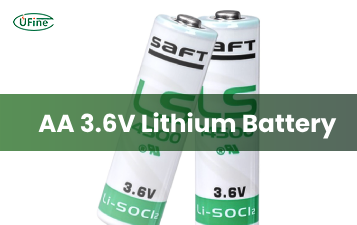
What You Need to Know About AA 3.6V Lithium Battery
Learn all about AA 3.6V lithium batteries—voltage, size, capacity, uses, and the best replacements. Discover why they’re powerful, and highly reliable.
What Are Lithium Salts and Why They Matter in Battery Electrolytes
Lithium salts in electrolytes are key to battery performance, powering everything from phones to EVs and shaping the future of clean energy.
Lithium AAA Battery Guide: Power, Performance & Chargers
Explore lithium AAA batteries—voltage, capacity, weight, top brands, and more. Learn how to choose the best battery for your device and why it really matters.
How to Calculate Watts, Volts, and Amps (With Simple Formulas and Examples)
Learn how to calculate watts, volts, and amps for lithium batteries with simple formulas and examples, ideal for EVs, solar, and energy systems.
Comprehensive Analysis of U.S. Tariffs on Chinese Lithium Batteries
U.S. tariffs on Chinese lithium batteries in 2025 impact costs, supply chains, and EV, energy storage, and electronics industries globally.
